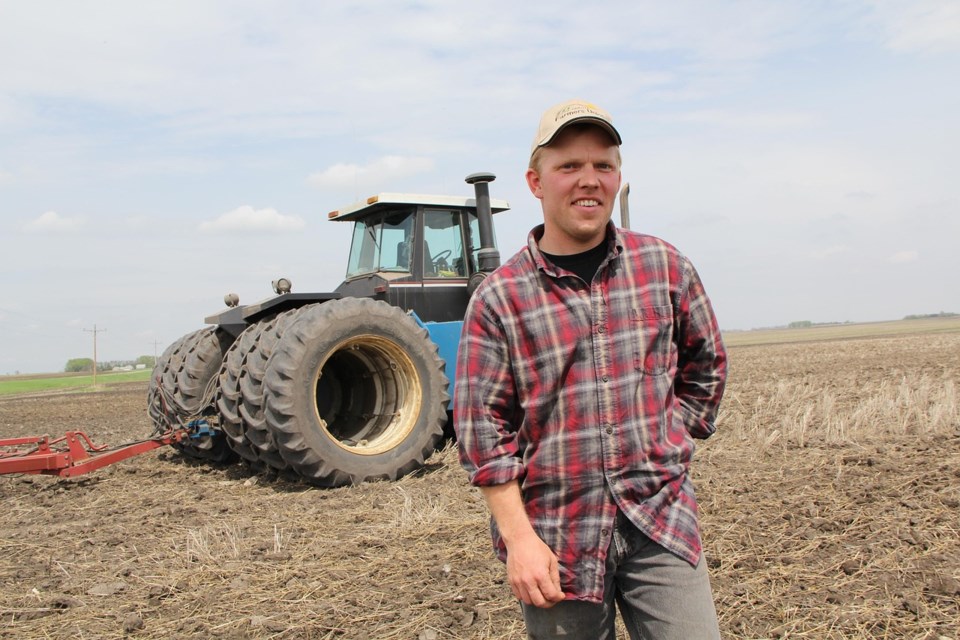Farming and ranching are considered two of the most stressful occupations, both physically and mentally, according to the Mental Health Commission of Canada (MHCC).
A mental health support organization for farmers, AgKnow, says that more than 75 per cent of Alberta farmers are experiencing anxiety, and nearly 66.7 per cent are facing depression. Suicide rates among farmers are also alarmingly high.
The MHCC says that factors affecting their mental health include isolation, financial uncertainty, barriers to accessing mental health, and blurred distinction between work and home life.
Christine Vachon, president of Soul Sisters Foundation, said that pride often keeps them from seeking help. They don’t want their neighbour to know.
“I think it’s a bit of pride but it’s mixed in with shame that they have to get help,” said Vachon.
The stigma against mental health still exists and is difficult to change.
“We keep knocking on that door trying to open it up a bit more to create an open and safe environment for people to connect and talk about their stressors,” said Vachon.
“We try to make it more of a safe environment," she added. "Sometimes it’s the wives that come and relay the information back to hubby.”
Vachon encourages people to invite those in the agriculture field to attend the 5th Annual Farmer’s Appreciation Night at the Westlock and District Community Hall on Jan. 24.
The event is designed to offer a break for local farmers and acknowledge their hard work and resilience.
“They don’t have to actively be farming to attend the event even though we call it farmers appreciation,” said Vachon.
“You can be a retired farmer. You can be married to a farmer. You could have grown up on a farm. You could work in the industry, or you could wish you were on a farm. We live in a farming community and those farmers are important to us, so we call it the Farmer’s Appreciation Night."
The highlight of the evening will be an inspirational address by Chris Koch, a farmer from Nanton who was born without arms or legs. Koch will speak about resilience, drawing from his own remarkable life story.
Events such as this are necessary to help isolated farmers and ranchers feel a part of the community. Reflecting on the changes in society over the years and how people tend to be more isolated now than in the past, Vachon said the evening is an opportunity for connections.
“It’s almost like we tend to stick to ourselves more. There’s probably a handful that still go help someone. If they know someone they go and help but it’s not like it used to be.”
This shift in social support is especially felt when it comes to grief. Vachon said that in the sixties or seventies, communities would rally around those who had lost loved ones, often bringing food and offering a comforting presence.
"People don’t even really support those people grieving like they used to back in the day.”
Recognizing that farmers can be particularly difficult to persuade out of isolation, Vachon encourages community members to bring those who may be reluctant to attend, adding that afterwards, they are often glad they attended.
“People see it wasn’t as bad as they stressed out over it.”
Tickets for the evening are $25 each, and minors are welcome to attend. There will be beef on a bun, door prizes and a cash bar.
To purchase tickets, visit the Soul Sisters Memorial Foundation website at www.soulsistersmemorialfoundation.com.
Soul Sisters Memorial Foundation aims to educate and raise awareness about mental illness and suicide prevention. Vachon said that while farming is rewarding, it also comes with challenges that affect farmers’ mental health.
Agriculture Financial Services Corporation (AFSC) says that in the past farmers have tended to deal with their stress and anxiety privately. AFSC is trying to change the way the ag industry views, promotes and talks about mental health.
Do More Ag is one of the groups leading that change, says AFSC on their website. They have trained thousands of producers and agribusinesses in mental health first aid, as well as Talk-Ask-Listen workshops. In addition, they have trained mental health professionals in agriculture literacy and created mental health resources. They have also facilitated speaking events and awareness campaigns.
Talk it Out is a virtual meeting space where farmers and their families can come together to share their experiences, worries and frustrations. It provides an opportunity for participants to ask questions, share resources and provide support to other farmers who are experiencing similar circumstances.
“The campaign is aimed at changing the everyday conversations, both within ag and from an outside perspective,” said Adelle Stewart, Do More Ag’s executive director, adding they want to change the culture from ‘if you can’t handle the stress, get out of farming’ to something more.
Do More Ag also has a list of many resources, everything from crisis lines to counsellors with lived ag experience on the Resource page on their website.
To view many of the sessions go to https://www.youtube.com/channel/UCibR7m-6PPYYiPSq9QbVPHw.
You can also ask for help anonymously. Go to https://www.domore.ag/talk-it-out.
If you need immediate help, please reach out to one of the following:
Emergency Services 911
Mental Health Help Line 1-877-303-2642 (Toll free)
Crisis Services Canada 1-833-456-4566 (phone), 45645 (text). crisisservicescanada.ca (web)



